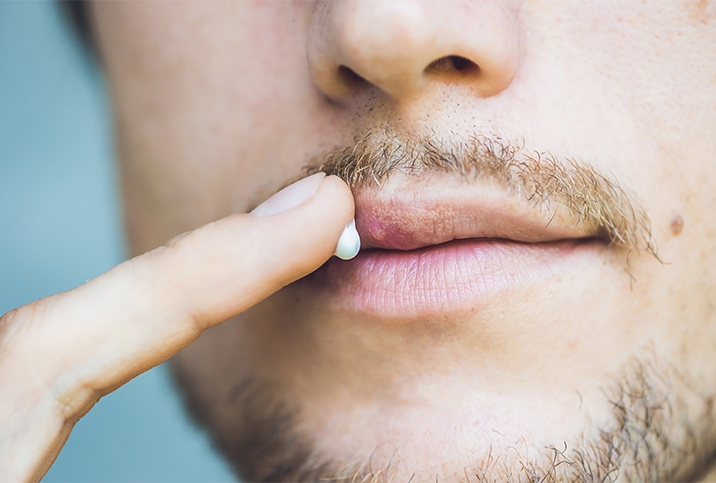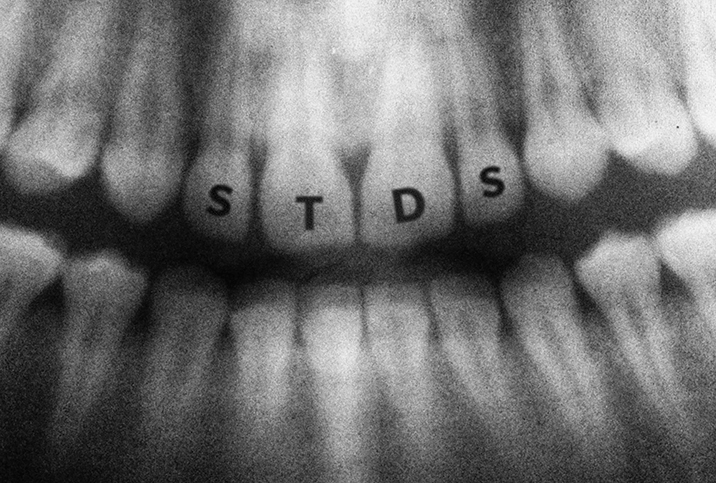Oral Sex Can Lead to STDs in Your Mouth, Throat, Lips and Tongue

When people hear about the importance of practicing safer sex, most may think only of how that applies to penetrative sex. However, sexually transmitted diseases (STDs), including syphilis, gonorrhea and hepatitis A and B, and even intestinal infections can be spread to the lips, tongue, mouth and throat as a result of having unprotected oral sex.
"I think one of the biggest misconceptions about oral sex is that it is completely risk-free," said Amanda Bule, a sex educator and reproductive rights advocate who works as an abortion patient navigator at Planned Parenthood in Pennsylvania. "Many people see it as a way to experience pleasure without the fear of pregnancy. While pregnancy is not a risk when having oral sex, it is still possible to transmit a number of sexually transmitted infections [STIs]."
Bule noted that while people shouldn't be ashamed of having an STI, it's important to be aware of them and communicate with partners about how to be intimate in a safe way.
"If STDs are a concern for you or your partner or partners, it's important to get tested regularly to know your status and use barrier methods such as condoms and dental dams to prevent transmission," Bule said.
Knowing how to prevent, recognize and treat STDs spread through oral sex is important so you can avoid complications and prevent the further spread of infection to other partners, especially given the common use of oral sex. According to the Centers for Disease Control and Prevention, 85 percent of sexually active adults ages 18 to 44 and 41 percent of sexually active teenagers ages 15 to 19 reported in a national survey that they had oral sex at least once with a partner of the opposite sex.
"The act of oral sex is still very taboo," said Jennifer Scott, Ph.D., M.P.H., a public health professional who specializes in comprehensive sex education for individuals of all ages in Texas.
Scott focuses on addressing questions about sexual health that people are often too embarrassed to ask.
"Many are still very uncomfortable discussing [oral sex] in general terms and are hesitant to ask questions related to it," she added. "Sexual acts are not always approached in a comprehensive manner, and, as a result, are almost categorized in levels of acceptability or appropriateness. Oral sex has, like any other sexual encounter, risks, and we need to have an open dialogue about decreasing those risks."
When oral sex causes STDs
Oral sex can be performed in a number of ways. It can be done by using the mouth and tongue to stimulate the genitals or the general genital area. Fellatio is the term for oral sex that involves the penis, cunnilingus is oral sex performed on the vagina, and anilingus is oral sex performed on the anus.
When these forms of oral sex are carried out without proper protection, the individuals involved are at risk of contracting an STD. Individuals who have received oral sex from someone with a mouth or throat infection can get certain STDs, and it's also possible to have an STD that affects both the throat and the genitals at the same time, according to the CDC.
"Most think of STIs only in the genital area," Scott said. "If you are using your mouth for sexual pleasure, you should also be aware of the risk. Untreated STIs in any area can cause more advanced health issues down the road. Gum disease and dental pain, as well as transfer to the genital areas, are risks if untreated."
Here are some STDs that can be transmitted by oral sex and affect the mouth as well as other parts of the body:
- Gonorrhea. Oral gonorrhea can lead to fever, a sore throat and redness in the throat, and swollen lymph nodes in the neck. Some people may present typical signs of gonorrhea in the genital area as well, but not always. If you have any symptoms—including painful urination and abnormal discharge from the penis or vagina—consult your doctor, because severe complications can develop when the condition is left untreated. Gonorrhea requires treatment with antibiotics.
- Hepatitis. Both hepatitis A and B can be spread through unprotected oral sex. While some people don't experience symptoms, an infection can lead to a flu-like sickness that causes a sore throat. According to Mayo Clinic, specific treatment for hepatitis A doesn't exist, as the body typically clears the viral infection on its own. Medication is sometimes used to mitigate symptoms until the infection is cleared. The hepatitis A vaccine or an injection of an antibody called immunoglobulin within two weeks of exposure to the virus may protect you from infection. Hepatitis B, on the other hand, is typically treated with an antibiotic injection in conjunction with the vaccination for hepatitis B if the individual was previously unvaccinated.
- Intestinal infections. Giving unprotected anilingus can lead to the transmission of intestinal parasites such as E. coli, Giardia and Shigella. Common symptoms of intestinal infection include diarrhea, fever and abdominal pain. Intestinal infections can lead to repeated vomiting, which can lead to a sore throat and dehydration. It is also possible to be an asymptomatic carrier of an intestinal infection. If you experience any symptoms, be sure to consult your doctor right away to get treated and avoid serious complications and further spread of infection.
- Syphilis. Oral syphilis can sometimes be mistaken for other more common conditions. Individuals with oral syphilis may develop sores on the lips or in the mouth. The disease can also cause a sore throat and, in some cases, large, raised sores on the gums and tongue. If you experience any symptoms, be sure to see your doctor right away as early detection and treatment have been associated with more successful treatment. Oral syphilis is diagnosed through a biopsy of tissue or fluid and is treated with antibiotics.
How to keep your mouth and tongue safe
While abstaining from sexual activity altogether is the only way to be sure you avoid contracting an STD, there are ways to continue having oral sex while significantly decreasing your chances of passing or getting an STD.
Here are some products you can use to make oral sex safer:
- Condoms. Using a non-lubricated condom on the penis during fellatio provides a barrier that greatly reduces your chances of giving or getting an STD during the act.
- Dental dams. During cunnilingus and anilingus, use a dental dam, which is a latex or polyurethane sheet that can be placed as a protective barrier between the mouth and tongue and the anus or vagina during oral sex.
Scott added that there are ways to get creative if the mood strikes and you're fresh out of dental dams.
"As a bonus, if you find yourself in a pinch and don't have a dental dam handy, simply snip the tip of a condom off and cut it down the side for a homemade dental dam," Scott said. "Ensure, of course, that you have no rips or tears in the finished product."


















